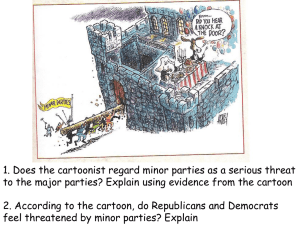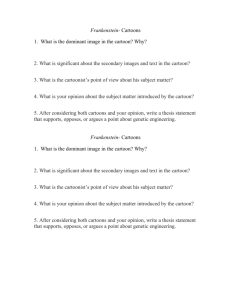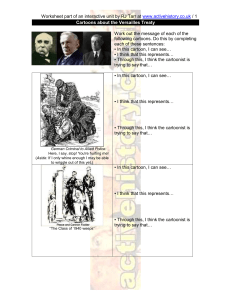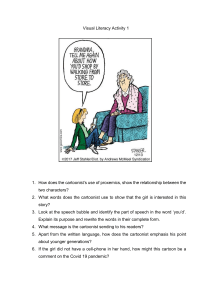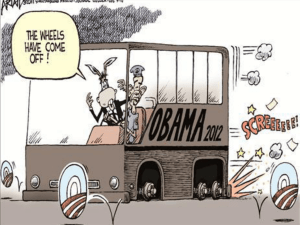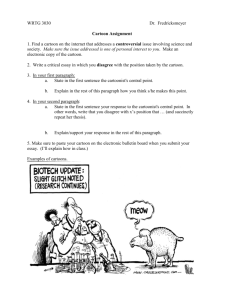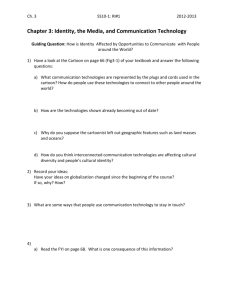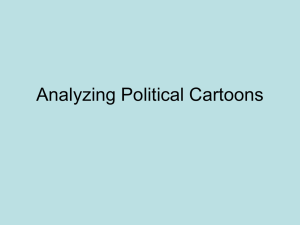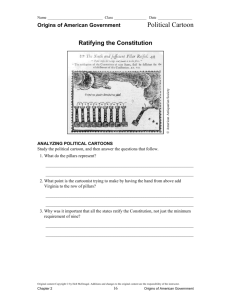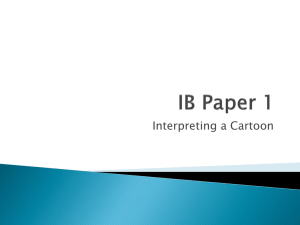Cartoon Analysis
advertisement
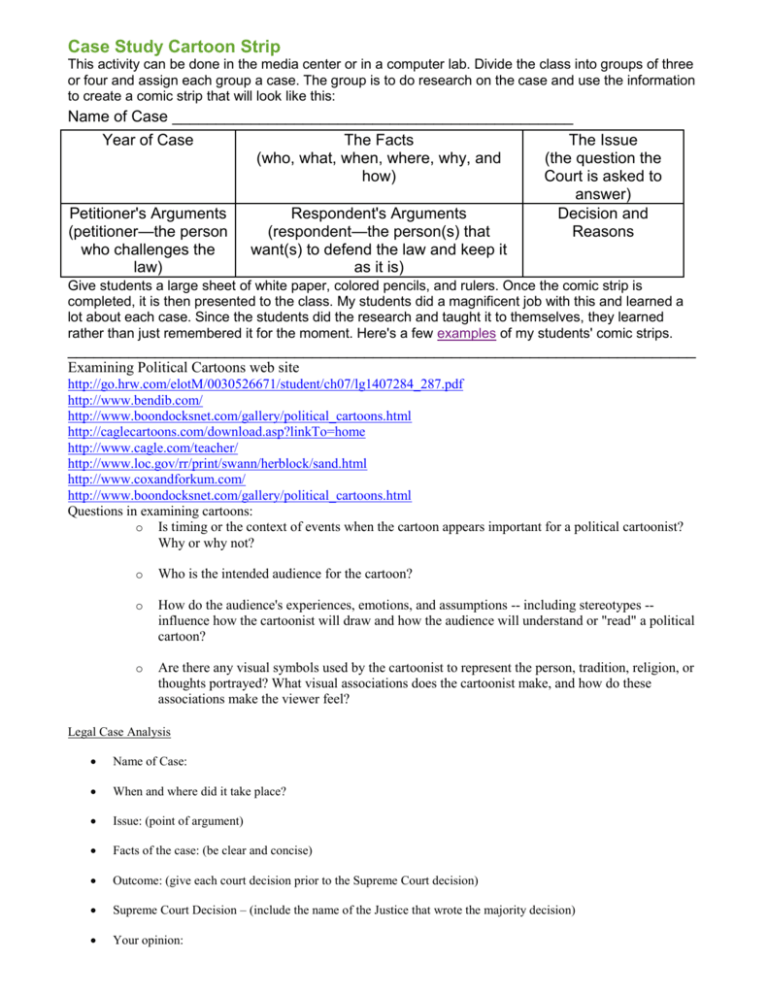
Case Study Cartoon Strip This activity can be done in the media center or in a computer lab. Divide the class into groups of three or four and assign each group a case. The group is to do research on the case and use the information to create a comic strip that will look like this: Name of Case ______________________________________________ Year of Case The Facts The Issue (who, what, when, where, why, and (the question the how) Court is asked to answer) Petitioner's Arguments Respondent's Arguments Decision and (petitioner—the person (respondent—the person(s) that Reasons who challenges the want(s) to defend the law and keep it law) as it is) Give students a large sheet of white paper, colored pencils, and rulers. Once the comic strip is completed, it is then presented to the class. My students did a magnificent job with this and learned a lot about each case. Since the students did the research and taught it to themselves, they learned rather than just remembered it for the moment. Here's a few examples of my students' comic strips. ________________________________________________________________________ Examining Political Cartoons web site http://go.hrw.com/elotM/0030526671/student/ch07/lg1407284_287.pdf http://www.bendib.com/ http://www.boondocksnet.com/gallery/political_cartoons.html http://caglecartoons.com/download.asp?linkTo=home http://www.cagle.com/teacher/ http://www.loc.gov/rr/print/swann/herblock/sand.html http://www.coxandforkum.com/ http://www.boondocksnet.com/gallery/political_cartoons.html Questions in examining cartoons: o Is timing or the context of events when the cartoon appears important for a political cartoonist? Why or why not? o Who is the intended audience for the cartoon? o How do the audience's experiences, emotions, and assumptions -- including stereotypes -influence how the cartoonist will draw and how the audience will understand or "read" a political cartoon? o Are there any visual symbols used by the cartoonist to represent the person, tradition, religion, or thoughts portrayed? What visual associations does the cartoonist make, and how do these associations make the viewer feel? Legal Case Analysis Name of Case: When and where did it take place? Issue: (point of argument) Facts of the case: (be clear and concise) Outcome: (give each court decision prior to the Supreme Court decision) Supreme Court Decision – (include the name of the Justice that wrote the majority decision) Your opinion:
